#marie antoinette das musical
Text
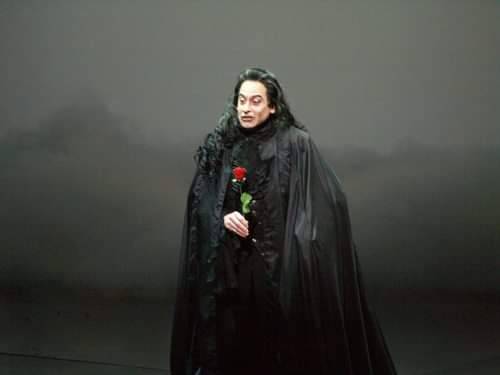
In 2009 Ethan performed the award winning role of time travelling court magician Cagliostro in Marie Antoinette.
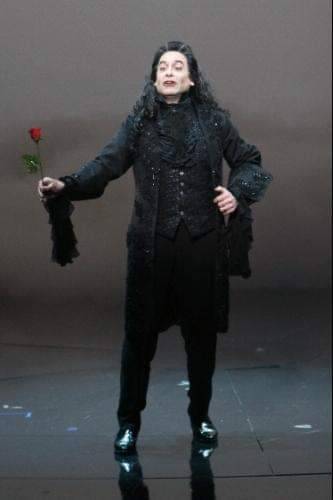
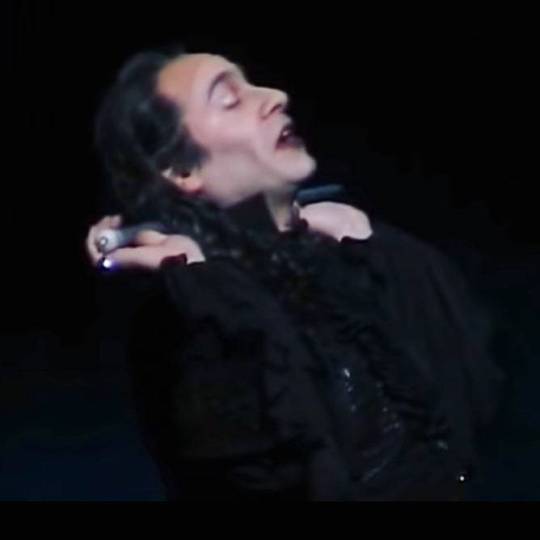
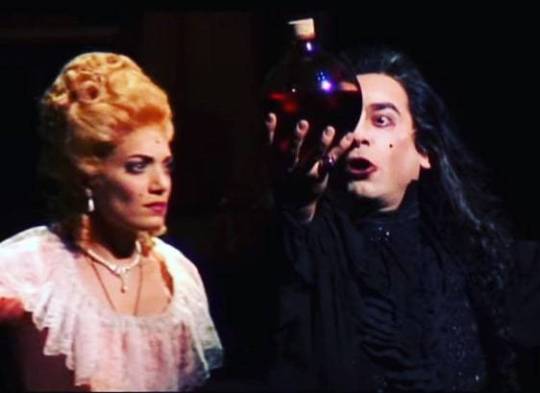


youtube
#ethan freeman#poto#phantom of the opera#european musicals#euro musicals#euromusicals#european art#marie antionette musical#marie antoinette the musical#marie antoinette das musical#marie antionette#elisabeth the musical#elisabeth das musical#jewish artist#jewish actors#jewblr#jewish singers#jumblr#Youtube
8 notes
·
View notes
Text
It's been five years since I got into this musical and it still haunts me that Orléans dies without knowing WHY Margrid betrayed him -- he'll always think that she lost her nerve at the last minute, because she never told him. He'd told her going in that morals weren't going to be particularly important in the operation, she signed on, and then she backed out when it became too difficult. He had no idea that they'd just engineered the death of her half-sister.
3 notes
·
View notes
Text
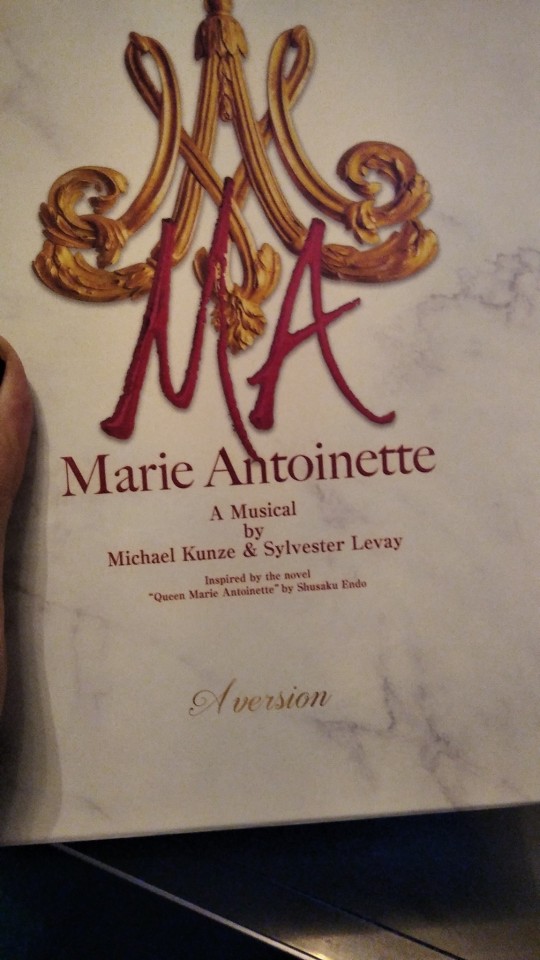
I am so glad that thanks to @margridarnauds I discovered this awesome musical. The dvd is beautiful with booklet and backstage. Im sure I cant resist to buy M -version soon or others Toho Musicals (Mata Hari, 1789 and Lady Bess 💕).
Thank you @chibimyumi for the subtitles.
#marie antoinette#toho stage#musical#marie antoinette das musical#ok without the sub it was cool with the sub it is AWESOME#it is incredible
7 notes
·
View notes
Text

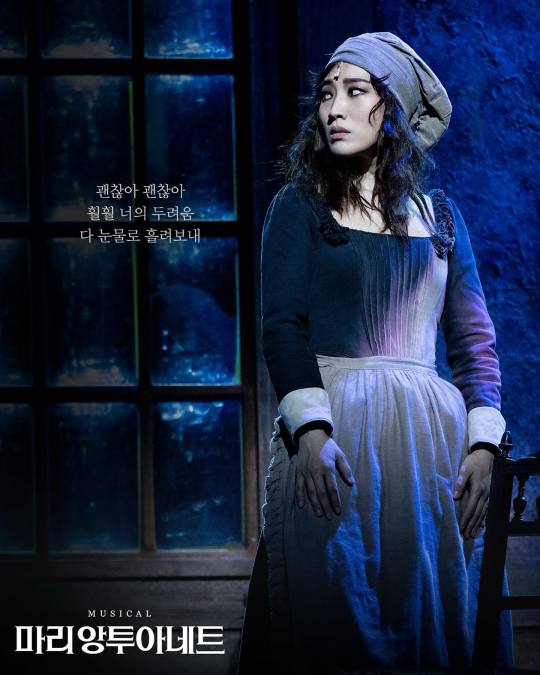
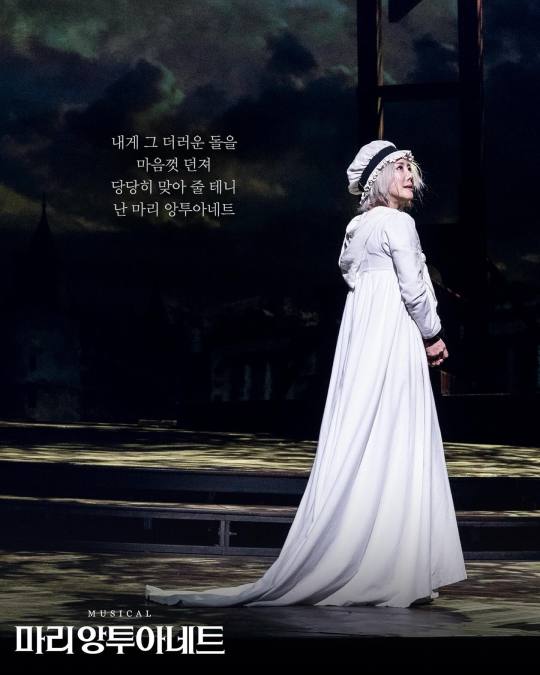
#musical#뮤지컬#musical marie antoinette#marie antoinette musical#marie antoinette das musical#뮤지컬 마리 앙투아네트
0 notes
Text
*Note: some of these already have English translations, but they are questionable at best.
#polls#poll#european musicals#musicals#romeo et juliette#retj#elisabeth das musical#romeó et juliette#István a király#mozart das musical#Marie Antoinette#notre dame de paris#notre dame de paris musical#i promessi sposi#monte cristo#master and margarita
48 notes
·
View notes
Text

Furukawa Yuta and his roles.. ❤️
#furukawa yuta#prince of tennis#musical elisabeth#1789 les amants de la bastille#kuroshitsuji#sebastian michaelis#marie antoinette#romeo and juliet#mozart#robespierre#fersen#lady bess#rudolf#felipe#cyrano#der tod#romeo#fujishusuke#elisabeth das musical
135 notes
·
View notes
Text
🇬🇧“In joy or sadness, flowers are our constant friends. We eat, drink, sing, dance, and flirt with them. We wed and christen with flowers. We dare not die without them. We have worshipped with the lily, we have meditated with the lotus, we have charged in battle array with the rose and chrysanthemum. We have even attempted to speak in the language of flowers. How could we live without them? It frightens one to conceive of a world bereft of their presence.”
🇧🇷“Na alegria e na tristeza, flores são nossas amigas constantes. Comemos, bebemos, cantamos, dançamos e flertamos com elas. Casamo-nos e batizamos com flores. Não ousamos morrer sem elas. Cultuamos com lírios, meditamos com lótus, investimos em formação de batalha com rosas e crisântemos. Tentamos até falar a língua das flores. Como poderíamos viver sem elas? Aterroriza-nos imaginar um mundo sem a sua presença.”
💐O Livro do Chá | The Book Of Tea, Okakura Kakuzō (1906).
🎥Films: Anne of Green Gables: The Sequel (1987), Howard's End (1992), Pride&Prejudice (2005), Marie Antoinette (2006), Atonement (2007), Bright Star (2009), Anna Karenina (2012), La Belle et la Bête (2014), Emma (2020).
📺Series: North&South (2004), Anne With an E (2017), Sandition (2019), Bridgerton (2020).
📼Scenes: @greengableslover
🎶Music: Evergreen, Richy Mitch & The Coal Miners.
#ladywatereton#anne with an e#pride and prejudice#north and south#quotes#books#bridgerton#la belle et la bête#marie antoinette#emma#sanditon#period drama#period piece#period edit#aesthetic edits#aesthetic#atonement#anna Karenina
16 notes
·
View notes
Text
Movies
A Castle for Christmas
A Royal Affair
A Royal Night Out
Aladdin (2019)
Angélique (2013)
Angelo
Assassin’s Creed
Baron Münchhausen
Beauty and the Beast (2017)
Belle (2013)
Berlin ‘36
Cinderella (2015)
Cinderella (2021)
Clara Immerwahr
Corsage (2022)
Crimson Peak
Das Attentat - Sarajevo 1914 (2014)
Das kalte Herz (2016)
Das weiße Haus am Rhein (2022)
Death on the Nile (2022)
Der Club der singenden Metzger
Der junge Karl Marx
Descendants 3
Die geliebten Schwestern (2014)
Effie Gray (2014)
Elizabeth (1998) & Elizabeth: The Golden Age (2007)
Emma (2020)
Enola Holmes & Enola Holmes 2
Fallen (2016)
Five Feet Apart
Geliebter Johann, Geliebte Anna
Gosford Park (2001)
Grace of Monaco (2014)
High School Musical Trilogy
House of Gucci (2021)
I, Tonya
Jack the Ripper - Eine Frau jagt einen Mörder (2014)
Kaisersturz
Katharina Luther
Käthe Kruse
Kronprinz Rudolf (2006)
Lady Macbeth (2016)
Les Miserables (2012)
Little Women (2019)
Lotte am Bauhaus
Love and Friendship (2016)
Ludwig (1972)
Ludwig II (2012)
Madame Bovary (2014)
Marie Antoinette (2006)
Mary Queen of Scots (2013)
Mary Queen of Scots (2018)
Marvel Cinematic Universe*
Mata Hari - Tanz mit dem Tod
Mozart's Sister (2010)
Mr Malcom's List (2022)
Mulan (2020)
My Cousin Rachel (2017)
My Fair Lady (1964)
Nacht über Berlin
Oceans 8
Ophelia
Ottilie von Faber-Castell - Eine mutige Frau
Romeo and Juliet (2013)
Rosaline (2022)
Ruby Red Trilogy
Sisi (2009)
Sissi Trilogy
Spencer
Sternstunde ihres Lebens
The Countess aka Bathory (2009)
The Current War (2017)
The Duchess (2008)
The Exception
The Favourite
The Girl King
The Greatest Showman
The Green Knight (2021)
The Hunger Games Trilogy
The King (2019)
The Last Duel
The Madness of King George
The Pagan Queen (2009)
The Personal History of David Copperfield (2019)
The Princess (2022)
The Princess Switch Trilogy
The Scandalous Lady W
The School for Good and Evil
The Twilight Saga
The Wolfman (2010)
The Young Victoria
Three Thousand Years of Longing
Till Eulenspiegel
Trenck - Zwei Herzen gegen die Krone
Tulip Fever
Vampire Academy (2014)
Viceroy’s Home
Victoria and Abdul
Vorwärts immer
W.E. (2011)
Wendezeit
____________________
*I don't have files for everything, so this depends on a case to case basis. I watched the movies and the Disney+ series but not most of the series produced by ABC, Freeform, Netflix etc.
9 notes
·
View notes
Photo
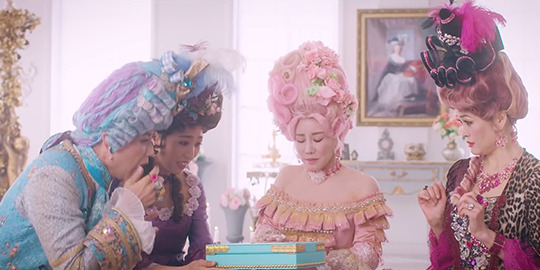
--Marie Antoinette: the Musical (Korean 2021 Production Trailer)
#marie antoinette#theater#marie antoinette musical#marie antoinette das musical#korean theater#LEONARD'S FACE
69 notes
·
View notes
Text

Ethan as Cagliostro Court magician extraordinaire!!
(Marie Antoinette)
#ethan freeman#poto#phantom of the opera#european musicals#marie antionette musical#marie antoinette the musical#marie antoinette das musical#marie antionette#elisabeth das musical#elisabeth the musical#empress elisabeth of austria#elisabeth#jewish singers#jewish actors#jewish artist#jewblr#jumblr
3 notes
·
View notes
Text
I'm fine with the child endangerment, I'm fine with the mob violence, I'm fine with the "plotting a coup d'etat that leads to thousands dead, not including the long-standing repercussions of it", I'm fine with the bitchiness, but the one thing I can't forgive Orléans Marie Antoinette das Musical for is making Margrid cry.
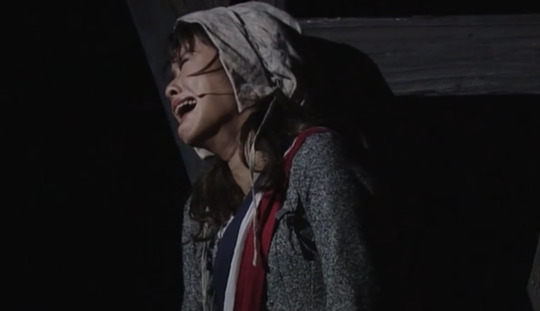
You monster.
5 notes
·
View notes
Text
I am watching Sannan-hen (not the blu-ray/dvd one of course) and oh dear...there is so much to say about the scenography and all the symbolism around the lights.
It's incredible how they improve the songs and their performance.
Trust me, soon I will blabbing through analysis about the Shinkai scenography because there is SO MUCH to say. Like Sannan-hen is up on my list concerning scenography but Saito-hen 2 and Souma-hen have good ideas too.
#hakumyu#hakuouki#sannan hen#saito hen#souma hen#and honestly I should watch again the old hen to do comparison with pros and cons and good and bad about their scenography#like I freaking love how scenography tells a lot about the story#and Sannan hen and Saito hen 2 give me for the first time incredibles feelings and emotions#like the ones I have when I watch Marie Antoinette Elisabeth Das Musical or Hamilton#gurako's confession
6 notes
·
View notes
Text
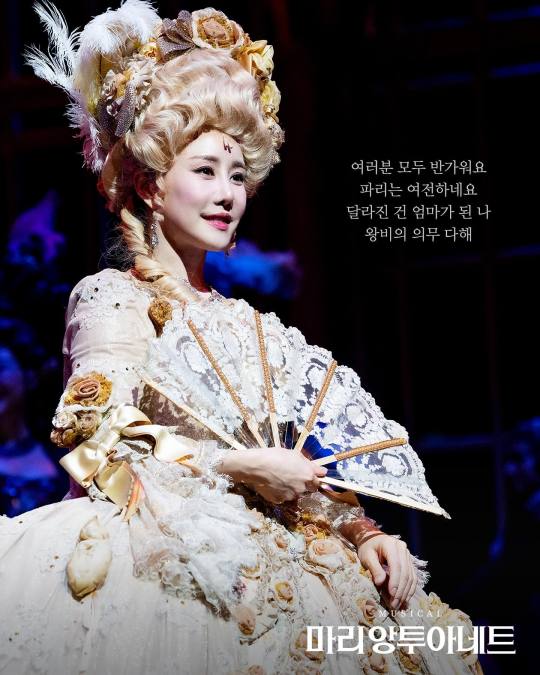
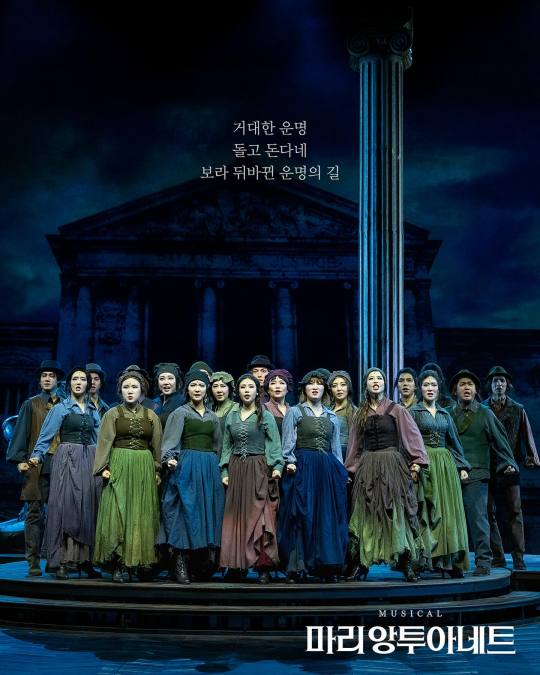

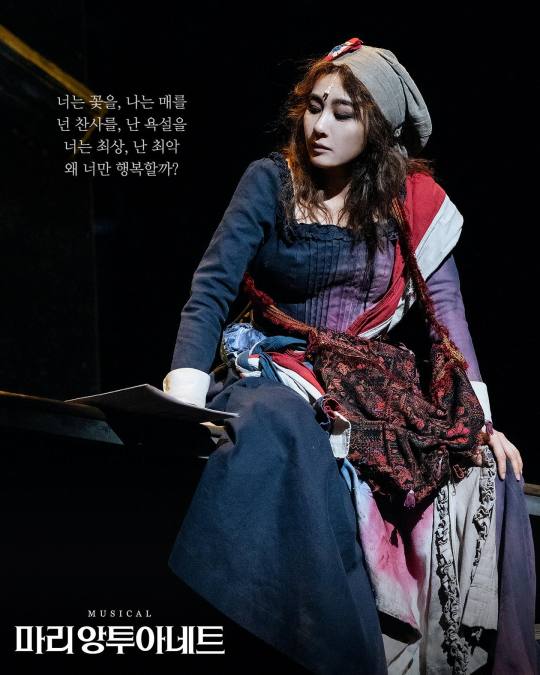
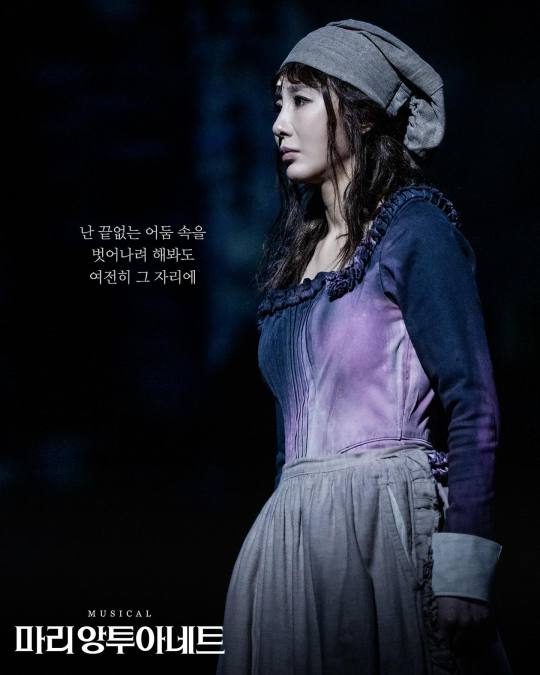
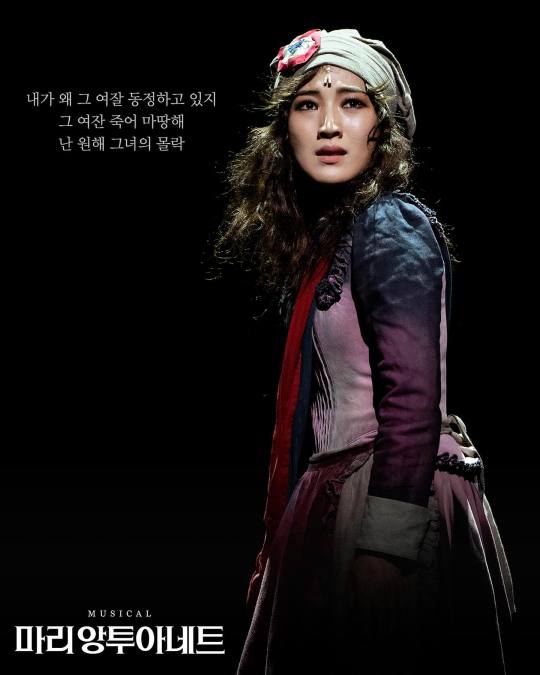
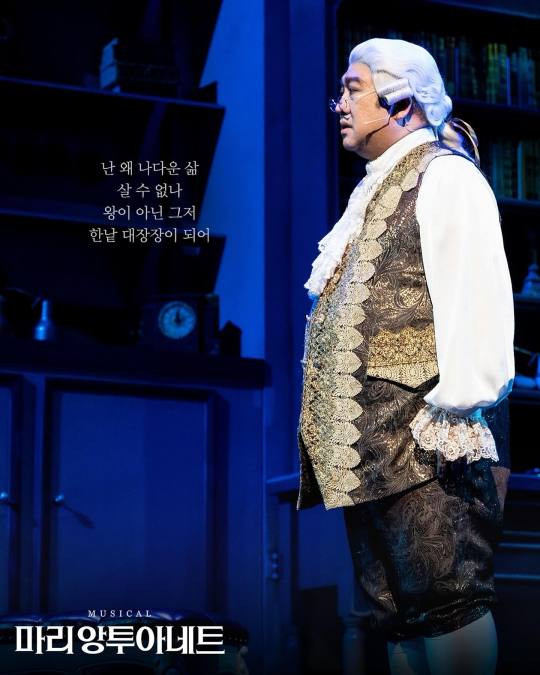
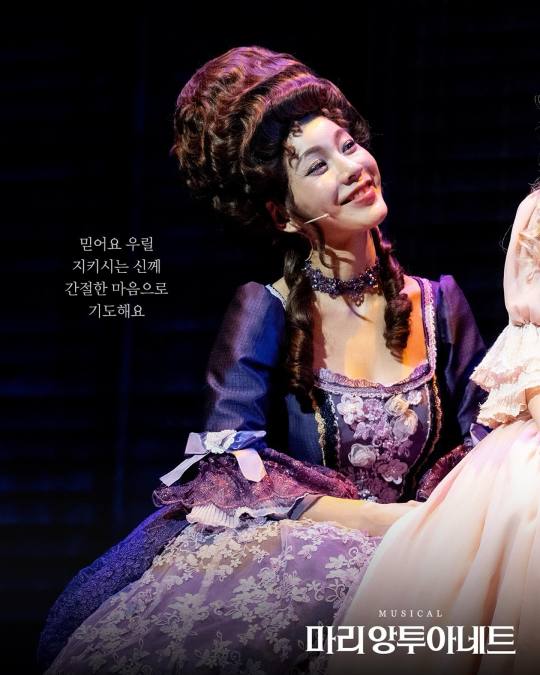
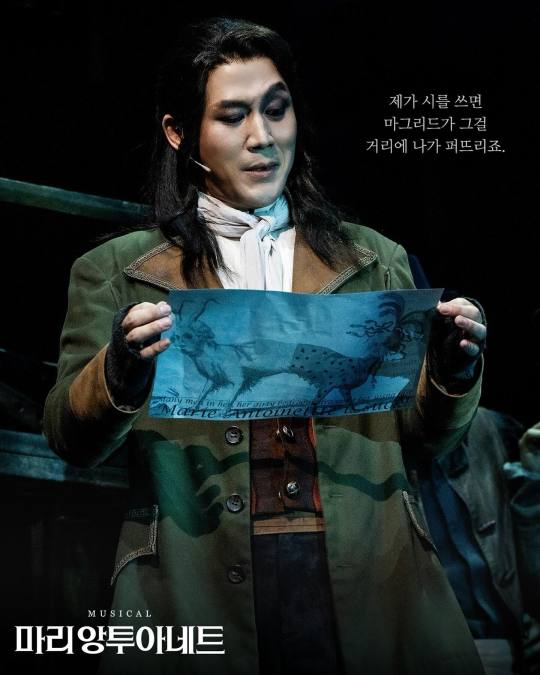
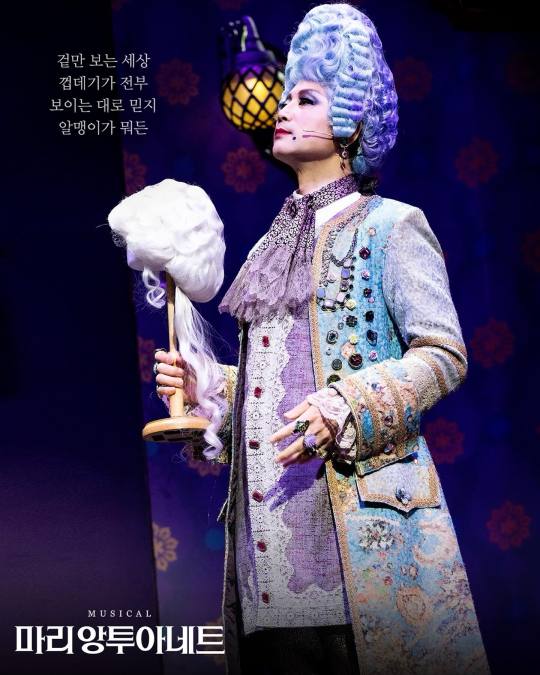
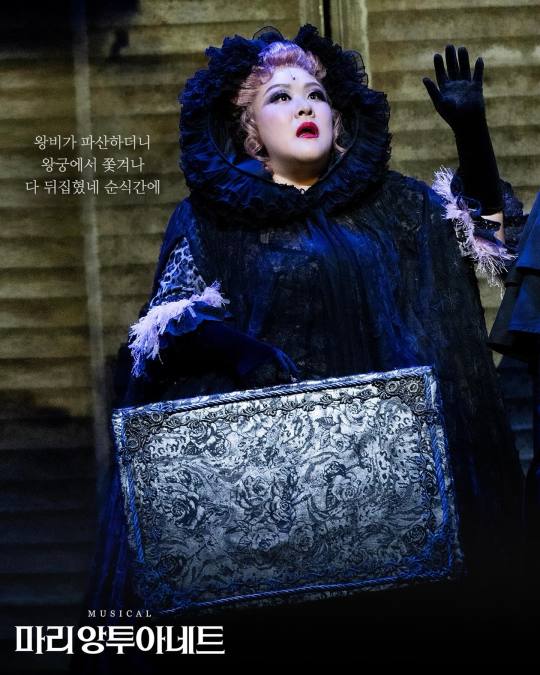
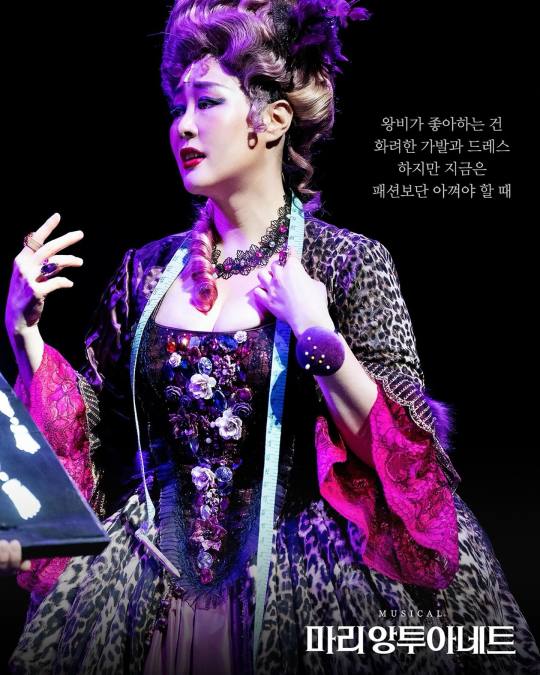
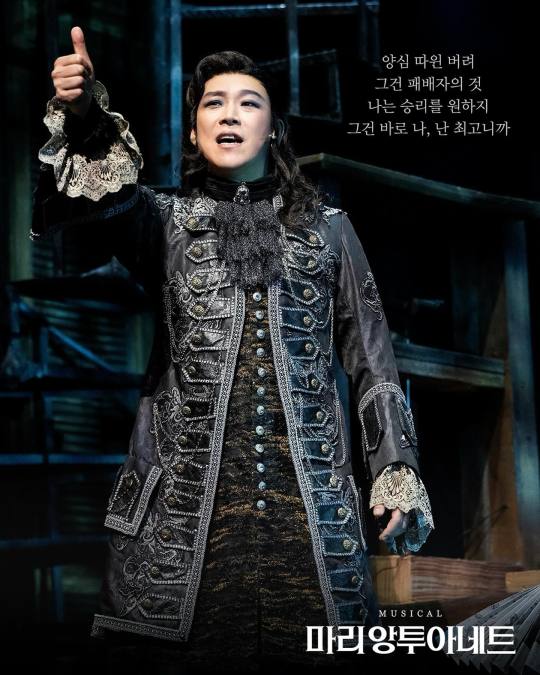
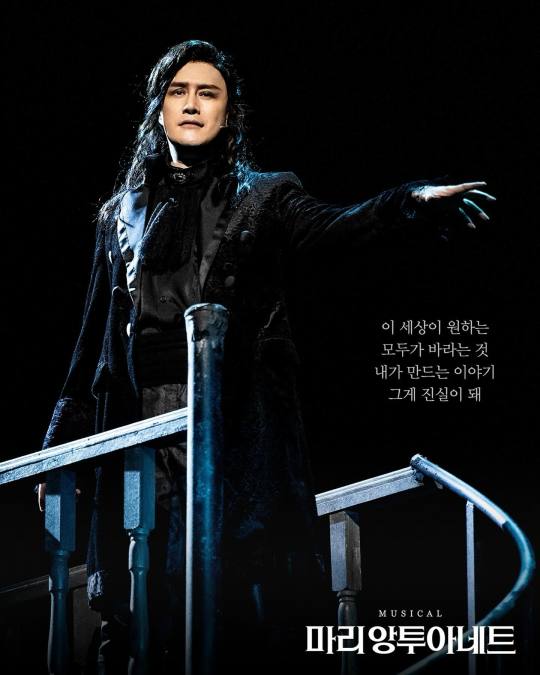
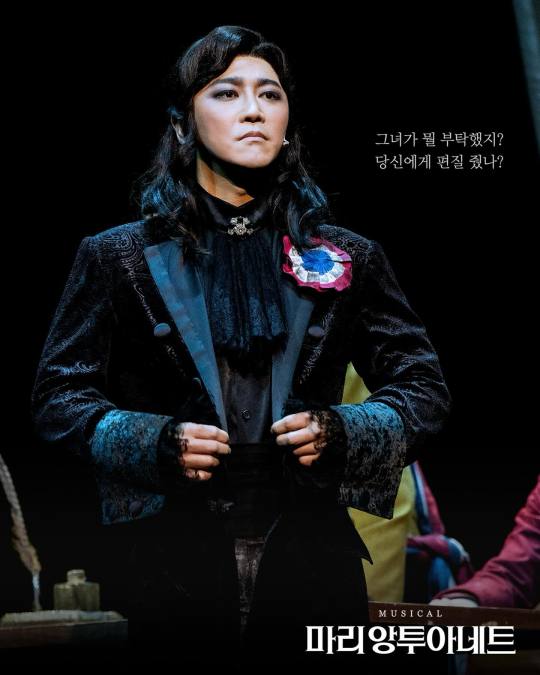
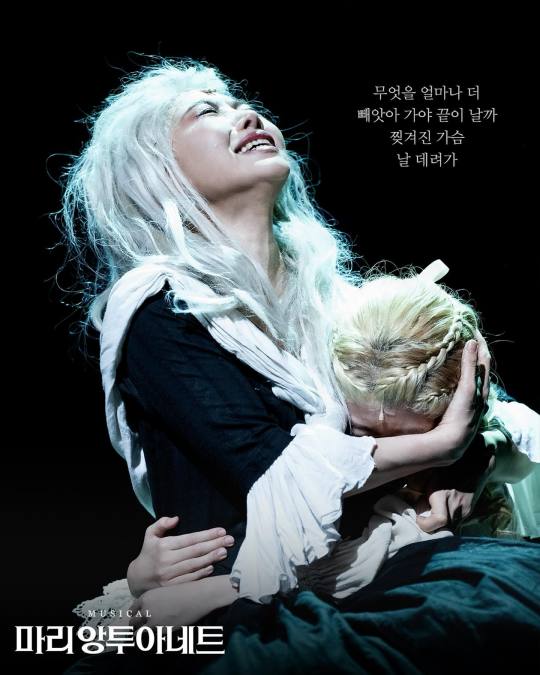
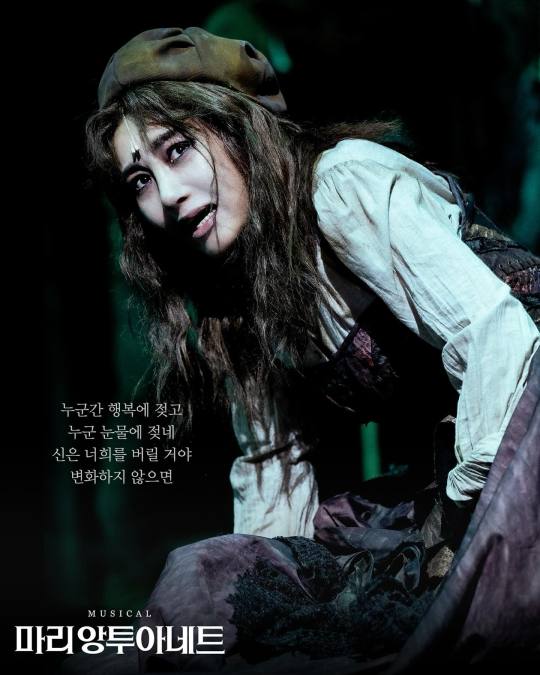
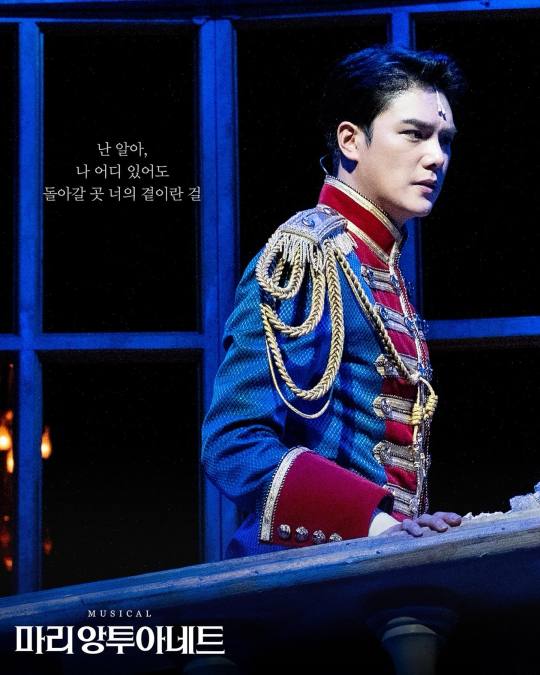
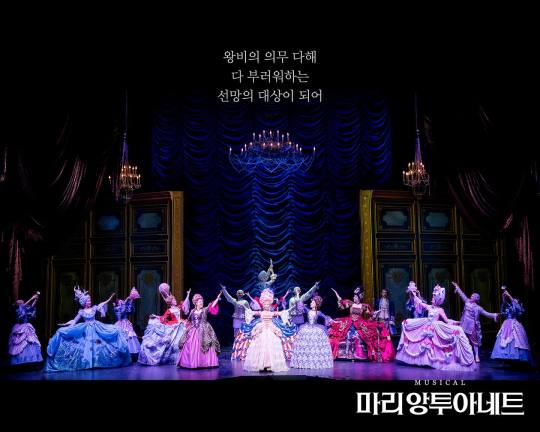
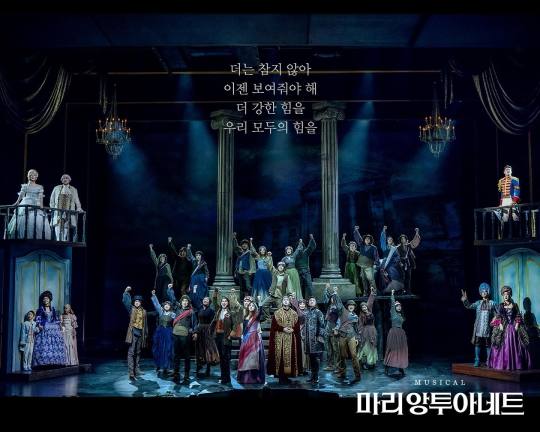
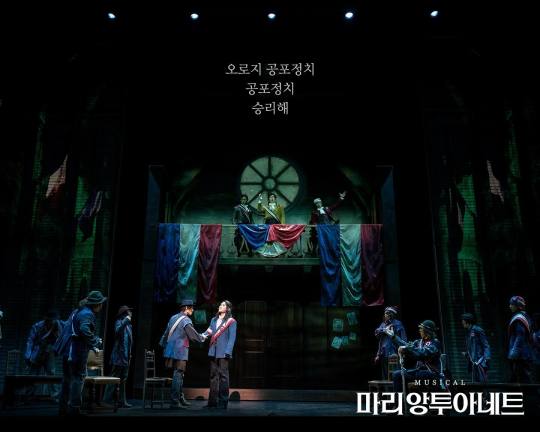
#musical#뮤지컬#musical marie antoinette#marie antoinette musical#marie antoinette das musical#뮤지컬 마리 앙투아네트
0 notes
Link
Chapters: 1/1
Fandom: Marie Antoinette - Levay/Kunze
Rating: Mature
Warnings: No Archive Warnings Apply
Characters: Margrid Arnaud, Jacques-René Hébert, Philippe Égalité (mentioned)
Additional Tags: Implied/Referenced Harrassment, Intimidation, Canon Compliant, Canon-Typical Violence, couple instances of rape threat if you squint really hard, No Dialogue, Based on the 2018 Japanese production, Not Beta Read, do not repost to another site
Series: Part 11 of Wordcount Challenge
Summary:
Hébert's angry outburst following Marie Antoinette's trial comes as no surprise to Margrid.
5 notes
·
View notes
Photo
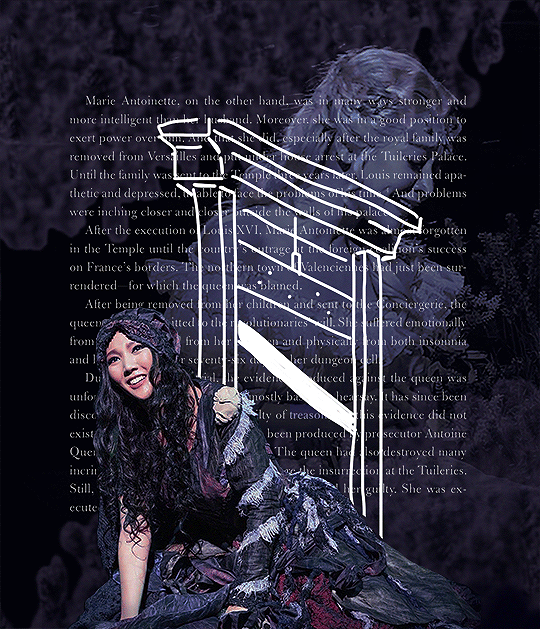
“During her trial as well as her long imprisonment, Marie Antoinette often stated that her biggest fear was compromising her friends or anyone who showed loyalty to her and her family. “I had friends,” she said in her last testament, remembering without a doubt those from her more carefree days at Versailles as well as those who risked their lives to free her and her family in prison.” – Will Bashor
Marie Antoinette's Darkest Days: Prisoner No. 280 in the Conciergerie
for @wildandwhirlingwords
#marie antoinette das musical#theatreedit#musicaltheatre#musicalgifs#musicaledits#korean musicals#kmusicals#jang eun ah#kim so hyun#marie antoinette korea#마리앙투아네트#뮤지컬#장은아#김소현#here it is i was making this on the fly whilst doing the tutorial lmao#but i usually plan edits like this its really more of a design composition than an edit#and thats why making edits is art and should be treated as such bc this is hard to do yall#i hope the tutorial helped babe
79 notes
·
View notes
Photo
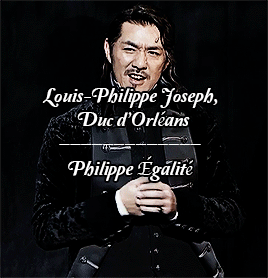
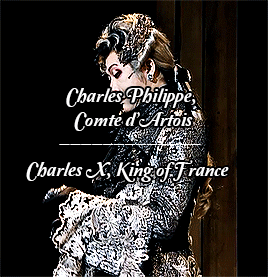





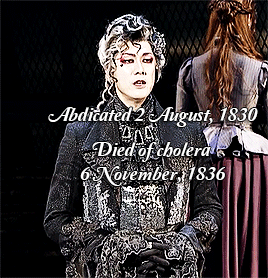
Gif Request Meme - A Musical of my Choice + a Villain: Artois and Orléans
↳ Requested by @fallenidol-453
Philippe Égalité: The only legitimate son of the Duc d’Orléans, a prince du sang from birth, Philippe was a very unlikely revolutionary. And yet Philippe showed a strong level of compassion for the lives of the lower class, going down a coal shaft to see the conditions faced by miners, pulling a groom of his from a river with his own hands, and providing shelter for the poor during the bitter winter of 1788-89.
He was noted for his extravagant lifestyle; a noted lover of racehorses, gambling, architecture, his various and assorted mistresses, and all things English. Despite being the richest man in France, with a truly astronomical income, he nonetheless found himself frequently in debt. That was the impetus for him to totally redesign the Palais Royal over the course of two and a half years, opening it up to shopkeepers and establishing it as a major area for counter revolutionary activity, with the police being banned from intervening. As such, an overwhelming feeling of liberty prevailed there, with people from all social classes gathering to observe the spectacles and walk along the gardens there.
There was a certain amount of hostility to be expected between the two branches of the Bourbon family, going as far back as the first Duc’s tempestuous relationship with his brother, Louis XIV. Still, the relationship between Louis XVI and Philippe gradually deteriorated over time, despite several attempts to patch things up. Orléans blamed Louis for the loss of his naval career, with the controversial Battle of Ushant in 1778 being a major breaking point in their relationship. In 1788, he spoke up at a “Royal Sitting” where Louis tried to press the Parliament into obeying his will, saying “Sire, this appears to be illegal.” Louis responded, “It is legal, because I wish it to be so.” Orléans spent the next five months in a comfortable exile at his estate, and he returned more popular than ever.
When the Estates General was called, Orléans sided with the Third Estate, taking his place with the other delegates rather than sitting with the Royal Family as his rank entitled him to. His name was consistently brought up alongside revolutionary activity, with his bust being paraded alongside Necker’s on July 12, 1789, when the rash charge of the Prince de Lambesc into the Tuilleries heightened the people’s fears over an armed crackdown of Paris. It would be in the Palais Royal where Camille Desmoulins would jump on a table and call the people to arms, and even though the exact impact of that statement’s been disputed, the fact that Palais Royal was a huge locus point for revolutionary activity never has been.
Among the royalists, it was popularly thought that Orléans was behind the entire Revolution, masterminding the Storming of the Bastille, the Women’s March to Versailles, a famine, and various and assorted other disturbances, in lieu of believing that the common people themselves were discontent. However, the sources nearest and dearest to Philippe suggest that he had no intention of seizing power, and Philippe’s own action of going and staying in England at Lafayette’s suggestion between October 1789 and July 1790, when he had a strong chance of fighting back against the charges and seizing power for himself by riding off the highest point of his popularity, strongly indicates that he had no intention of seizing the throne for himself. Overall, while he was a man of undeniable courage, the popular consensus is that he was, by nature, too passive to do it on his own, generally being very diffident to those near him such as his former mistress and longtime friend, Madame de Genlis, as well as her rival for his attention, Pierre Ambroise François Choderlos de Laclos, and generally disinterested in long-form plans, preferring to throw himself into whims. It is far more likely that, if a plan existed to make Philippe king, it came from one of those brains, as opposed to anything Philippe himself considered in any detail.
He did, however, become embittered over the increasingly chilly reception he received at Versailles, including one occasion where a courtier shouted “Do not let him touch the wine!” when he entered, with him then being spat on as he made his leave.
In the latter half of 1792, Philippe faced a bevy of problems, both personal and political, as his long-suffering wife had filed for a separation, his daughter was put on a list of émigrés and was forced to leave the country very shortly after arriving (after Madame de Genlis, who he had instructed to take her back before her name could be added, lingered for too long, causing a final breakdown in their long relationship), his popularity was rapidly fading, and he had been called, as a Deputy of the National Convention, to sit at the trial of his cousin. According to one anecdote, found in William Cooke Taylor’s Memoirs of the House of Orléans, it was in that particular maelstrom that he changed his name, as a last ditch effort to save his daughter and prove his loyalty to the Revolution, to Philippe Égalité. Many options were considered for him to not sit the trial, and there is no reason to believe, despite the long-lasting enmity that the two of them had, that Philippe, when he went to sleep the night before the trial of Louis began on December 26, that he had any idea that when it came time to give the verdict on January 14-15, he would vote “yea,” a decision that shocked the entire room, not the least Louis himself. Perhaps it was a last ditch effort to save himself, perhaps he felt pressured to do it by everyone else in the room, perhaps in that moment he truly believed that Louis’ actions merited the death penalty. It’s impossible to truly know, but in the end that one decision, more than anything else, has defined his legacy.
However, the Royalists would soon be able to find some comfort, as, on the 4th of April 1793, his son, Louis-Philippe, Duc de Chartres, defected along with General Dumouriez, and Philippe’s enemies had the ammunition they needed.
On 7 April, 1793, he was arrested and sent to Fort Saint-Jean in Marseilles, along with two of his sons. Throughout his imprisonment, Philippe kept up an optimistic front, constantly reassuring his sons, the Duc de Montpensier and the Comte de Beaujolais, on the rare occasions he was allowed to speak to them after they were separated, that everything would turn out well, even expressing optimism about his trial in Paris. Whether this was real or simply an attempt at keeping up morale will never be known, but on November 2, 1793, he was sent back to Paris, to be imprisoned in the Conciergerie. He was tried on the 6th and, at his own request not to prolong things any longer than necessary, he was executed on that same day. By all accounts, he met his death courageously, his composure only threatening to break when the cart he was in stopped in front of the Palais Royal, so that he could very clearly see the sign on it that said it was now national property. His last words were to stop the assistants at the guillotine from taking off his boots, saying “You are losing time, you can take them off at a greater leisure when I am dead.”
Unlike his royal cousins, his body was never found, and to this day, he is generally considered as one of the great villains of the Revolution in media associated with it, though none of the serious charges against him (the October Days being prime) were ever proven.
Charles X- For most of his younger years, like his older cousin, Charles’ defining quality was his wild life, which was punctuated by multiple love affairs, copious gambling and alcohol, and even more copious debts, with his brother, Louis XVI, somewhat reluctantly paying the bills. He also had a close friendship with his brother’s wife, who he shared a love of high living with, the two of them often being seen together at the theatre and balls. This close friendship was much remarked upon, with Artois being a frequent subject of the pornographic pamphlets that circulated about the queen, along with Marie Antoinette’s favorite, Madame de Polignac. In the years preceding and following the Revolution, however, the two of them gradually cooled, with their later relationship being marked by political disagreements. Charles consistently pressured his brother into more conservative stances during the meeting of the Estates General, arguing against doubling the Third Estates’ representation and conspiring to get rid of Louis’ liberal finance minister, Jacques Necker. The dismissal of the Necker would end up being one of the leading causes for the Storming of the Bastille, with Charles’ temporary personal victory being quickly eclipsed by the blaze that the little spark of Revolution had turned into. In the days immediately following the Storming of the Bastille, Artois was ordered to emigrate by his brother, along with the rest of his family.
He wouldn’t see France again for decades, going from court to court in Europe asking for help and trailed by a small army of creditors (who would become some of his most frequent companions, the avid huntsman only being able to go out riding at his estate at Holyrood on Sundays, when his creditors would be unable to pursue him), but with very little materializing, even less of which was successful, with the Battle of Quiberon being particularly disastrous to any hope of a royalist win by military might. Instead, he set up his main residence in London, with his mistress, Louise de Polastron, sister-in-law of Madame de Polignac, upon whose death he swore a vow of celibacy, the former playboy becoming sober and religious in his later years. The family briefly returned to France in May 1814, with the exile of Napoleon to Elba, however his later escape and mustering of the troops led to them leaving the city in February 1815, only able to fully establish themselves back in the country shortly after Napoleon’s defeat at Waterloo. Upon his brother, the Comte de Provence’s ascension to the throne as Louis XVIII (the space between XVI and XVIII being taken up by Charles’ young nephew, Louis-Charles, who died in prison and therefore never ruled), Charles became known as a leading member of the Ultra Royalist faction, who were, as the name suggests, “More Royalist than the king.” His brother dying without a male heir, Charles took the throne in 1824, though his highly conservative policies following his more tolerant brother’s reign made him highly unpopular with the public.
In 1830, he was forced to abdicate. His intent had been for the throne to go to his young grandson, however, it would go to Louis-Philippe, Duc d’Orléans, the son of Philippe Égalite (who would himself end up being deposed.) He spent the remainder of his life similarly to how he spent his exile, traveling from place to place, hounded by debtors.
Eventually, he would die in Austria, on 6 November 1836, 43 years to the day of his revolutionary cousin’s execution.
Sources:
The Chevalier de Saint-Georges: Virtuoso of the Sword and the Bow: Gabriel Banat
A French King at Holyrood: Alexander John Mackenzie Stuart
The Journalists and the July Revolution in France: The Role of the Political Press in the Overthrow of the Bourbon Restoration 1827–1830: Daniel Rader
Memoirs of the House of Orléans: William Cooke Taylor
The Perilous Crown: France Between Revolutions, 1814-1848: Munro Price
Prince of the blood : being an account of the illustrious birth, the strange life and the horrible death of Louis-Philippe Joseph, fifth duke of Orleans, better remembered as Philippe Egalite: Evart Seelye Scudder
Revolutions in the Western World 1775–1825: Jeremy Black, ed.
#perioddramaedit#asiantheatrenet#musicaltheatreedit#historyedit#1789 les amants de la bastille#marie antoinette das musical#keigo yoshino#mitsuo yoshihara#long post#ch: artois#Production: Toho#other musicals: MA#historical#on this day in history we mourn the death of two thots#one more than the other#(apologies if I smudged any facts given that it is rather late)
65 notes
·
View notes